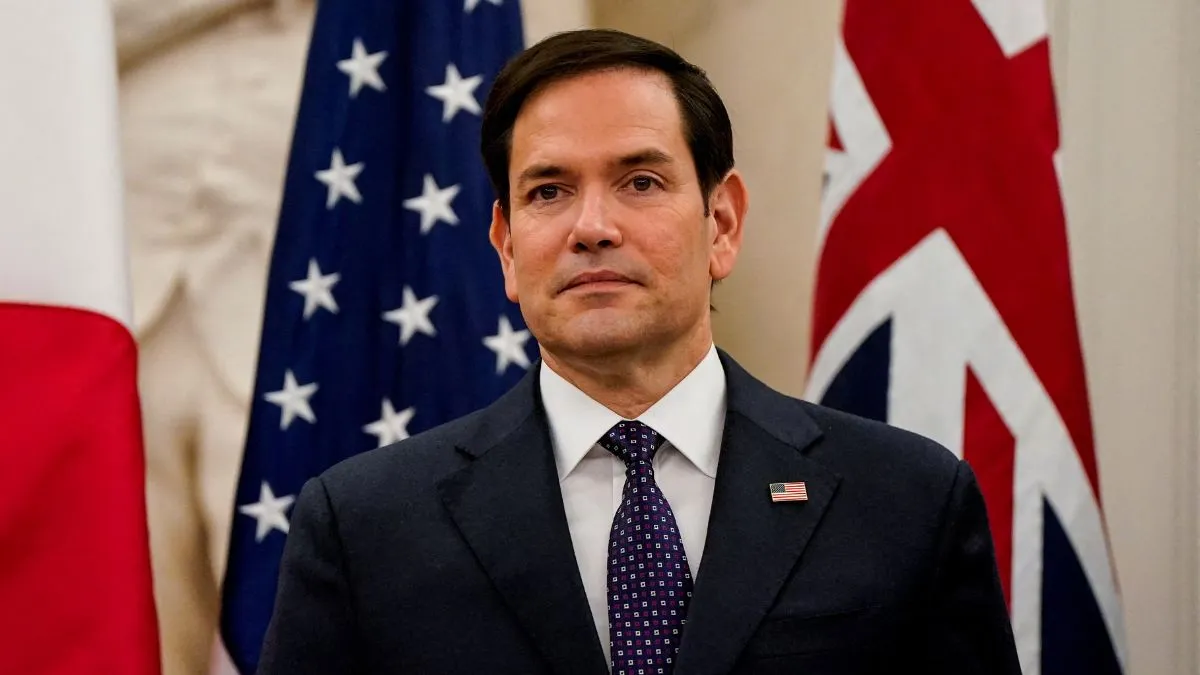- By Supratik Das
- Mon, 18 Aug 2025 07:44 AM (IST)
- Source:JND
The United States is closely monitoring the security situation between India and Pakistan “every single day”, US Secretary of State Marco Rubio said on Sunday, reiterating American President Donald Trump’s claim of having helped avert a possible nuclear escalation between the two South Asian neighbours. Rubio’s remarks, made during an interview with NBC News, come against the backdrop of heightened diplomatic exchanges over the May ceasefire following Operation Sindoor.
Rubio drew a parallel between the Russia-Ukraine truce efforts and the India-Pakistan conflict, stressing that ceasefires are inherently fragile. "One of the complications of ceasefires is maintaining them, which is very difficult. Every single day, we are keeping an eye on what is happening between Pakistan and India," Rubio said. Speaking on the Russia-Ukraine ceasefire deal, he said, "the only way to have a ceasefire is for both sides to agree to stop firing at one another. And the Russians just haven't agreed to that." "Ceasefires can fall apart very quickly, especially after a three-and-a-half-year war (in Ukraine) like what we're facing now, but I don't think anyone disagrees that the ideal here, what we're aiming for is not some permanent ceasefire. What we're aiming for here is a peace deal so there's not a war now and there's not a war in the future," Rubio added.
'Ceasefire has to be maintained, which is very difficult. The U.S keeps an eye on what is happening between India and Pakistan every single day,' says Marco Rubio on NBC.
— Atishay Jain (@AtishayyJain96) August 17, 2025
This is a big admission & Munir starting another skirmish is a possibility. pic.twitter.com/d81LPNrjnH
In a separate interview with Fox Business, Rubio again mentioned the recent conflict between India and Pakistan that President Donald Trump has repeatedly claimed he solved. "And I think we are very fortunate and blessed and should be thankful to have a President who has made peace and the achievement of peace a priority of his administration. We've seen it in Cambodia and Thailand. We've seen it in India-Pakistan. We've seen it in Rwanda and the DRC. And we're going to continue to pursue any opportunities we can find to bring about peace in the world," Rubio said.
India’s Rejects Trump's Mediation Claims
Since May 10, President Trump has consistently asserted that Washington mediated a “full and immediate” ceasefire between India and Pakistan after a “long night” of talks. Trump claims to have warned both sides of economic consequences while simultaneously offering “a lot of trade” if the conflict stopped.
ALSO READ: Trump Again Claims Credit For Averting India-Pakistan Conflict Amid No Ukraine Deal In Alaska Talks
“Look at India and Pakistan. They were shooting down aeroplanes already, and that could have gone nuclear. I was able to stop it. Wars are very bad, and if you can avoid them, you must. I seem to have an ability to end them,” Trump had said during his recent summit with Russian President Vladimir Putin. The White House has amplified this narrative, with Press Secretary Karoline Leavitt last month suggesting that Trump deserves the Nobel Peace Prize for ending conflicts. “President Trump has ended disputes in India-Pakistan, Congo-Rwanda, Israel-Iran, and more. That’s one peace resolution every month,” she stated.
ALSO READ: Will Donetsk Be The Price Of Peace In Ukraine? Trump’s ‘Make A Deal’ Move Raises Fear In Kyiv
New Delhi has consistently denied Trump’s version. Prime Minister Narendra Modi told Parliament that India halted Operation Sindoor on its own terms after achieving military objectives, not under any external pressure. External Affairs Minister S Jaishankar also dismissed the US President’s claims. “There was no pressure related to trade. I was present during a phone call between Vice President JD Vance and Prime Minister Modi. There was no hint towards a ceasefire. The perception that trade and ceasefire were connected is simply wrong. Diplomacy and defence choices are separate,” Jaishankar said in a Newsweek interview. According to Indian officials, the ceasefire was initiated after Pakistan’s Director General of Military Operations reached out to New Delhi once Islamabad had suffered heavy military losses.
As US continues to highlight his alleged role in ending the India-Pakistan conflict, India remains firm on its position that the ceasefire was secured solely through its military and diplomatic channels. With Washington simultaneously increasing trade cooperation with Islamabad while pressing New Delhi on tariffs and Russian oil imports, the divergence in narratives underscores the shifting dynamics in South Asia’s strategic landscape.
